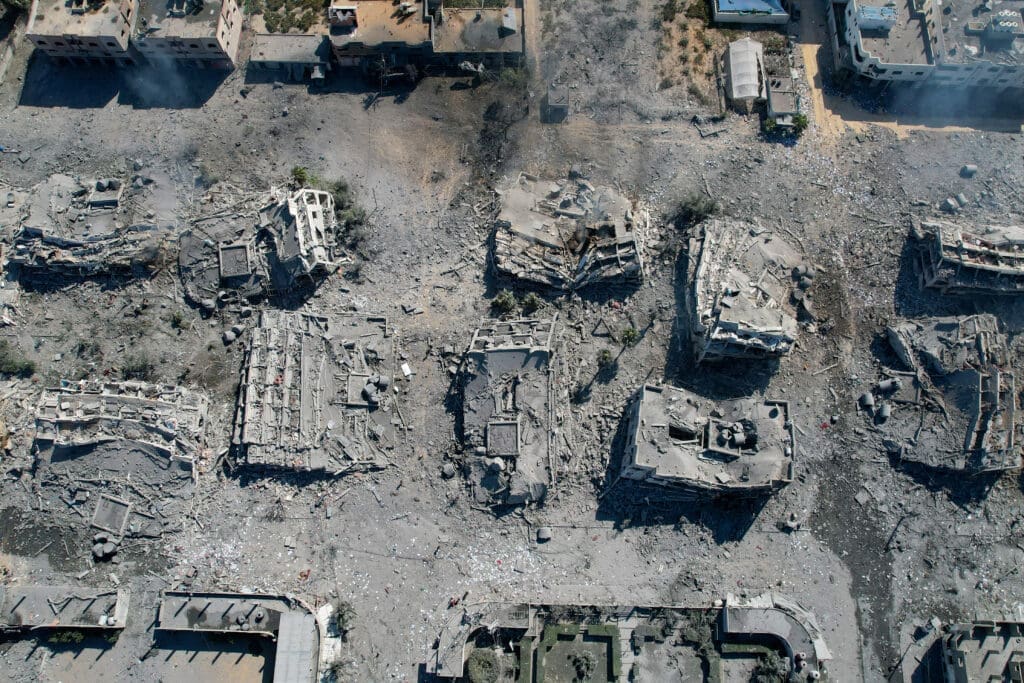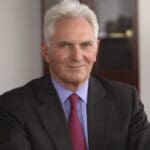U.S. President-elect Donald Trump has become the first Republican candidate in 20 years to win the popular vote.
His historic win hands him control of the Senate, Congress and the Republican party, along with a strongly conservative-leaning Supreme Court. How will this power be deployed?
If we take Trump’s election rhetoric literally, his “Maganomics” agenda will be top priority. Domestic policy will center around protectionism, deregulation, deportation of irregular immigrants, tax cuts, a roll back of climate-related commitments, and a move to oil and gas enabled “energy dominance.”
Trump has said he will impose tariffs of 20 percent across the board and 60 percent on China, along with trade restrictions. Should these tariffs be realized, Gulf Cooperation Council (GCC) oil and gas, aluminum and steel exports would suffer.
Maganomics policies are also likely to stoke inflation, suppressing the Fed’s ability to lower interest rates aggressively in 2025. Higher rates will negatively constrain new borrowing and financing plans for both households and businesses.
In a context of absent social safety nets or tax credits, higher inflation will disproportionately impact low-income households, further raising inequality.
Investors should also be concerned about fiscal costs. U.S. public debt already exceeds 120 percent of GDP, and the Penn Wharton Budget Model estimates that Trump’s plans will raise US deficits by $5.8 trillion over the next decade—equivalent to wartime deficits in a full employment scenario. Beware, the US is overheating!
The bottom line is that Trump’s America First policies set the stage for global supply-chain disruptions and trade tensions with China, Mexico, Canada and the European Union.
These policies will also put pressure on NATO members to boost defense spending. Without a shift away from these stances, the global economy is vulnerable to further geo-economic fragmentation.
A Trump Ukraine Plan?
Three major geoeconomic-strategic issues face the Trump administration post-election: the Russia-Ukraine and Israel-Palestine-Lebanon wars, as well as growing tensions with China.
Trump’s geostrategic “peace through strength” stance, and unwillingness to engage the U.S. in wars, implies striking a deal with Russia and a rapid end to the costly military confrontation through a neutral, non-NATO Ukraine.
The next step is reconstruction. Post-war restoration will require massive funding, likely to be well in excess of $600 billion. How can this be financed?
In one scenario, a “Trump Ukraine plan” could be jointly EU-U.S. financed, focused on rebuilding infrastructure and renewed integration of Ukraine’s export-oriented manufacturing and agriculture sectors into Europe. Such a strategy, supported by foreign aid, would act as a driver of economic growth.
New Institutions for Stability
With increased influence, Trump has a unique opportunity to work towards ending the Israel-Gaza and Lebanon conflicts as part of a broader Middle East peace agreement. This approach could champion the potential economic benefits that peace and stability would bring to the MENA region and the global economy.
The starting point would be the reconstruction and re-development of Gaza. The UN estimated in early 2024 that it would take Gaza 15 years just to remove war rubble and 70 years to restore the country to 2022 GDP levels.
The UN estimates the region will also require the largest post-war reconstruction effort since 1945, with rebuilding cost estimates ranging up to $80 billion.
In Lebanon, escalating destruction and displacement are pushing the country toward a Gaza-like crisis, worsening severe economic, banking and financial instability.
The 2006 war dealt Lebanon a heavy blow, with reconstruction costs surpassing $10 billion. This time, however, costs could exceed $25 billion, with GDP potentially shrinking by 20 to 25 percent.
Funding for reconstruction and redevelopment in Gaza and Lebanon will need to come from multilateral aid and grants.
Once a sustainable peace settlement is achieved, GCC countries can play a major role in redevelopment, not only in terms of state reconstruction funding but in the mobilization of its private sectors to help rebuild war-torn nations.
It is essential to learn from past reconstruction failures, like those of Iraq and Afghanistan, and apply lessons from previous post-war efforts. Transparency, accountability, anti-corruption measures, and the understanding that nation-building is a long-term commitment are all critical for success.
If Trump is to bring stability to the region, it is imperative that he address the rebuilding of nations that have been ravaged by war. The road ahead will not be easy.
Post the Lebanese civil war, it took 20 years for real GDP to recover to pre-war levels. It took Kuwait seven long years to recover following the Gulf War.
We need new institutions to address nation building. A Trump administration, in partnership with the GCC and multilateral banks, would do well to set up a Middle East development bank.
Such an institution can focus on financing post-conflict reconstruction, regional infrastructure projects, and promote the development and integration of economic and financial sectors across the region.
This article was originally published on Arabian Gulf Business Insight.


